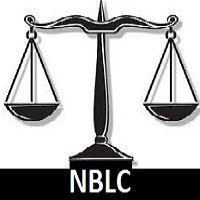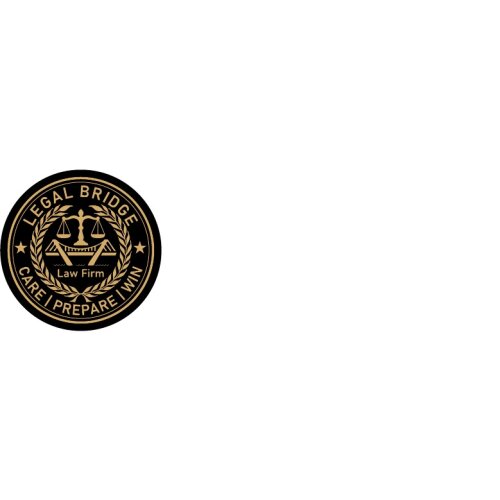Best Restructuring & Insolvency Lawyers in Pakistan
Share your needs with us, get contacted by law firms.
Free. Takes 2 min.
Or refine your search by selecting a city:
List of the best lawyers in Pakistan
About Restructuring & Insolvency Law in Pakistan
Restructuring and insolvency law in Pakistan governs the processes involved when individuals, companies, or other entities are unable to pay their debts in full. These laws provide mechanisms for the fair distribution of assets among creditors, protection of debtor rights, and, in some cases, allow troubled businesses to continue operating while reorganizing their affairs. The primary goal is to offer financially distressed stakeholders effective avenues for either recovery and revival or orderly liquidation. Over the years, Pakistan has made significant efforts to update its legal framework to meet international standards and facilitate smoother resolution of bankruptcy cases.
Why You May Need a Lawyer
Seeking the help of a lawyer experienced in restructuring and insolvency can be essential in several scenarios. Common situations include when a business can no longer pay its debts as they become due, when an individual faces overwhelming personal liabilities, or when a creditor seeks to recover amounts from insolvent debtors. Lawyers can help assess the best course of action, advise on negotiations with creditors or debt settlement, ensure compliance with regulatory processes, represent stakeholders in court, and assist in drafting or reviewing key documents required in the restructuring or insolvency process. Legal support is crucial for protecting rights, minimizing losses, and avoiding unintended legal consequences.
Local Laws Overview
In Pakistan, the primary regulations governing insolvency and restructuring proceedings are found in several key laws. For corporate entities, the Companies Act 2017 provides the framework for winding up and restructuring companies, while the Banking Companies (Recovery of Loans, Advances, Credits, and Finances) Act 1997 relates to banks. The Insolvency (Adjudication and Bankruptcy) Act 2016 introduced new procedures for both corporate and individual bankruptcy, aiming to modernize insolvency processes. Other relevant provisions can be found in the Contract Act 1872, Civil Procedure Code 1908, and court precedents. These laws set out the process for voluntary and involuntary liquidation, reorganization, debt settlement, rights of creditors and debtors, and the roles of regulatory authorities and courts in supervising such proceedings.
Frequently Asked Questions
What is the difference between restructuring and insolvency?
Restructuring refers to reorganizing a business's financial or operational structure to improve viability and avoid insolvency. Insolvency occurs when a person or entity cannot pay debts as they come due. Insolvency may lead to liquidation, but restructuring aims to allow revival and continued operation.
Who can file for insolvency in Pakistan?
Insolvency petitions can be filed by individuals, partnerships, or companies who are unable to meet their debt obligations. Creditors can also petition for the insolvency of a debtor they believe cannot pay its debts.
What are the usual outcomes of insolvency proceedings?
The primary outcomes are either restructuring, where debts are renegotiated and the entity continues, or liquidation, where assets are sold and proceeds are distributed to creditors. For individuals, bankruptcy may result in debt settlement or discharge.
Are directors of an insolvent company personally liable for company debts?
Typically, company debts are the responsibility of the business, not individual directors. However, directors may be personally liable in cases of fraud, wrongful trading, or if they have given personal guarantees for debts.
How long does the insolvency process take in Pakistan?
The timeline varies depending on the complexity of the case and court schedules. Simple liquidation can take several months, while large corporate restructurings may extend over a year or more.
Can creditors take action during a restructuring process?
Generally, there are legal restrictions on creditor actions once a restructuring or insolvency process is initiated, to ensure equal treatment of all creditors and orderly resolution. However, the specifics depend on the type of proceeding underway.
What happens to employees during insolvency or restructuring?
Employees are treated as preferential creditors for certain dues, such as unpaid wages, according to law. In a restructuring, the business may continue operations, often retaining most employees. In liquidation, employment contracts are typically terminated.
Is it possible to avoid liquidation through restructuring?
Yes, restructuring is often a preferred alternative to liquidation, allowing the business to reorganize, renegotiate debts with creditors, and continue operations when it is viable to do so.
What is the role of the court in insolvency proceedings?
The court supervises insolvency and restructuring proceedings, appoints liquidators or administrators, approves settlement plans, and resolves disputes among creditors and debtors.
Do I need a lawyer for insolvency or restructuring?
While not always mandatory, engaging a qualified lawyer ensures compliance with legal procedures, protection of your rights, and can improve your chances of a favorable outcome, whether as a debtor or a creditor.
Additional Resources
Key resources for restructuring and insolvency cases in Pakistan include:
- Securities and Exchange Commission of Pakistan (SECP) - Regulates corporate insolvency and restructuring.
- State Bank of Pakistan (SBP) - Oversees banking sector debt recovery and restructuring.
- Civil Courts and High Courts of Pakistan - Supervise and adjudicate insolvency proceedings.
- Pakistan Institute of Corporate Governance - Offers guidelines and publications on corporate compliance, including insolvency matters.
- Registered lawyers and law firms specializing in corporate, commercial, and insolvency law.
Next Steps
If you are facing financial distress, considering insolvency, or need to restructure your debts or business in Pakistan, it is important to act promptly. Start by gathering all relevant financial documents and prepare a clear outline of your current situation. Consult with a qualified lawyer or a law firm specializing in restructuring and insolvency to discuss your options, understand your rights and obligations, and develop a strategy suited to your circumstances. Your legal advisor will guide you regarding documentation, negotiations, court filings, and compliance requirements. Taking timely legal advice can help prevent losses, avoid mistakes, and explore alternatives before issues escalate.
Lawzana helps you find the best lawyers and law firms in Pakistan through a curated and pre-screened list of qualified legal professionals. Our platform offers rankings and detailed profiles of attorneys and law firms, allowing you to compare based on practice areas, including Restructuring & Insolvency, experience, and client feedback.
Each profile includes a description of the firm's areas of practice, client reviews, team members and partners, year of establishment, spoken languages, office locations, contact information, social media presence, and any published articles or resources. Most firms on our platform speak English and are experienced in both local and international legal matters.
Get a quote from top-rated law firms in Pakistan — quickly, securely, and without unnecessary hassle.
Disclaimer:
The information provided on this page is for general informational purposes only and does not constitute legal advice. While we strive to ensure the accuracy and relevance of the content, legal information may change over time, and interpretations of the law can vary. You should always consult with a qualified legal professional for advice specific to your situation.
We disclaim all liability for actions taken or not taken based on the content of this page. If you believe any information is incorrect or outdated, please contact us, and we will review and update it where appropriate.
Browse restructuring & insolvency law firms by city in Pakistan
Refine your search by selecting a city.

















